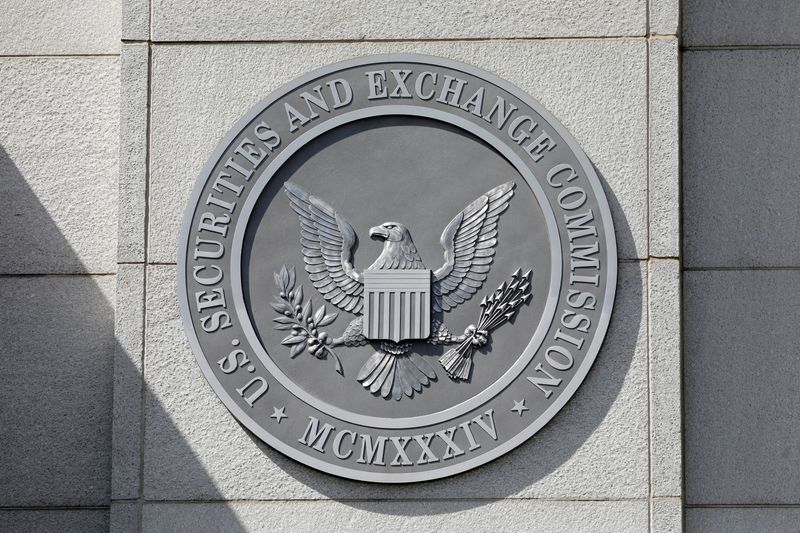(This July 23 story has been corrected to say 'private fund' instead of 'investment' in paragraph 1)
By Carolina Mandl and Michelle Price
NEW YORK (Reuters) - The U.S. Securities and Exchange Commission (SEC) has decided not to ask a U.S. appeals court to review a June ruling that said the agency did not have the power to oversee private fund advisers, according to a source familiar with the matter and court filings.
The SEC had until the end of Monday to appeal the decision by the New Orleans-based Fifth U.S. Circuit Court of Appeals, which decided 3-0 to vacate the SEC regulation which would have imposed more transparency on private fund fees.
The SEC had not filed a petition by the end of Monday, according to the Fifth Circuit docket, and one person familiar with the matter said the agency had decided not to ask the court to review the ruling. An SEC spokesperson declined to comment.
The decision throws into question whether the SEC can proceed with a handful of other rules for investment advisers, although the agency could still appeal to the Supreme Court.
The MFA, which represents hedge funds and other private funds, the Alternative Investment Management Association (AIMA), and other private fund groups brought the suit, arguing the rule exceeded the SEC's statutory authority. It is one of several industry suits brought against the SEC over the past two years.
Fifth Circuit Judge Kurt Engelhardt agreed, rejecting the SEC's argument that Congress gave it authority through the 2010 Dodd-Frank law to implement the rule. He said the applicable provision "has nothing to do with private funds."
As such, the court found the SEC did not have rulemaking authority over private fund advisers and their investors, according to the MFA and other lawyers' reading of the ruling.

Jiří Król, AIMA's deputy CEO, said the group was pleased with the SEC's decision: "Avoiding a protracted rehearing process provides certainty for in-scope firms," he said.
The SEC would have several weeks to file a petition with the Supreme Court. Reuters could not immediately ascertain whether the agency was contemplating that course of action.